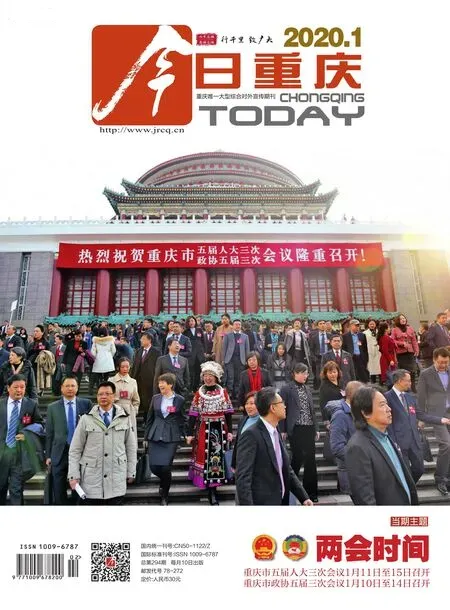“左手右手”绕不过的愁
◇ 文|
Article | Tian Dong
2017年12月14日,89岁的诗人余光中带着淡淡的乡愁离去。余光中离世这天,浙江文艺出版社推出了电子版《凡•高的向日葵——余光中散文》,我在余光中曾寄身的重庆,拥衾而读,不禁感怀。
On December 14, 2017, the 89-year-old poet, Yu Guangzhong left us with a touch of nostalgia. That day, Zhejiang Literature & Art Publishing House came out with an electronic version of“Van Gogh’s Sunflower - Yu Guangzhong’s Prose”.I read the book in Chongqing where Yu has stayed,embracing the quilt, and I can hardly contain oneself for melancholy.

左手右手“Left Hand” and “Right Hand”
自序里,余光中说:“散文与诗,是我的左右手,我曾戏称自己的散文是‘左手的缪斯’。我开始写散文,比开始写诗虽然晚了三年,但是‘左手的缪斯’比起‘右手的缪斯’来,却成熟得较早。”
余光中的散文和他的诗歌一样,饮之欲醉。梁实秋曾经赞叹,“余光中右手写诗,左手写散文,成就之高一时无两。”也有评论认为,余氏散文的功力和成就,不在其诗歌之下,甚至还要高那么一点点。
比如《石城之行》中写,“正午的太阳以四十余度的斜角在南方的蓝空滚着铜环,而金黄色的光波溢进玻璃窗来,抚我新剃的脸。我深深地饮着飘过草香的空气。”《南太基》里,“我沿着红砖砌成的人行道走过去,走进十七世纪。”连名字也诗意盎然的《听听那冷雨》中写,“就凭一把伞,躲过一阵潇潇的冷雨,也躲不过雨季。连思想也是潮润润的。”
In the preface, Yu Guangzhong said, “Prose and poetry are like my right hand and left hand, and I called my prose the ‘Muse of left hand’. I began to write prose three years later than poetry, but‘Muse of left hand’ came out more mature than‘muse of the right hand’”.
Like his poems, Yu Guangzhong’s prose also fascinates readers. Liang Shiqiu once praised,“Yu uses right hand to write poetry, left hand writing prose, and the achievement in the two are likely the same.”, yet some critics argue that Yu’s achievements in prose are no less than his poetry, even higher.
For example, in “The Travel to Stone City”, Yu writes “the midday sun hanging in the southern blue sky with a slope of forty degrees, golden light comes through the glass window and touch my newly shaved face. I breathe the fresh grass smell in the air.” In “Nantucket”,“I walked along the red brick sidewalk and into the seventeenth century.” Even the prose “Listen to The Cold Rain” got a poetic name. “With an umbrella, I can avoid cold rain but not a rainy season. Even my thought is moist.” writes the author.
“一点”散文“A Little Bit” of Poetry
诗人自叙,“我一向认为,抒情散文切忌一味抒情而到滥情的程度……另一方面,我又觉得文学评论不宜过于古板以致无情……也就因此,我的散文里有一点诗,而论文里有一点散文。”
“一点”是多少?读过本书的朋友一定对数量单位的定义会有新的认识。
我也必须自我纠正一下,对余光中光动辄仅称诗人是不准确的,必须加上“散文家”。自序中,散文家余光中将散文分为六类——情、理、意、事、景、物。若各加一字,则是“抒情、说理、表意、叙事、写景、状物”。六项之中,前三项抽象而带主观,后三项具体而带客观。“抒情文近于诗,叙事文近于小说,写景文则既近于诗,亦近于小说。所以诗人大概兼善写景文与抒情文,小说家兼善写景文与叙事文。”
余光中还颇有些得意的论断:“六项功能,或许可以用来衡量一位散文家是‘专才’还是‘通才’。”言下之意,似乎是将自己归为后者。毕竟自古以来,中国人对“通”“全”的景仰,是高于“专”的。
In the preface, Yu says, “I always think that lyrical prose shouldn’t be blindly lyric. On the other side, I also think that it is inappropriate for literary reviews to be heartless…. So there’s a little bit of poetry in my prose,and a bit of prose in poetry.”
How much is “a little bit”? People who have read this book must have a new understanding of quantity units.
I have to correct myself that it is not accurate to address Yu Guangzhong as a poet and “proser” must be added. In the preface, proser Yu Guangzhong classified prose as six categories, “expressing sentiment, arguing,expressing meaning, narrating, describing the scenery and objects”. Among the six, the first three are abstract and subjective while the latter three is concrete and objective.Lyrical prose is close to poetry, narration is close to novels, description is similar to poetry and also similar to novels. Therefore, poets are probably good at description and also good at lyrical prose and novelists probably do well in description and narration.
“Six functions may be used to measure whether an essayist is a specialist or a generalist.” claims Yu complacently. By implication, he classifies himself as the latter. After all, since ancient times, Chinese people’s admiration for generalists has been higher than specialist.
回归“乡”与“愁”“Homeland” and “Melancholy”
不管怎么分类,如何圆其说,有一点余光中是绕不过去的,那就是“愁”。余光中说乡愁是一枚邮票,有意无意中,“愁”成了他身上的一枚标签。他的有些文字不明说愁绪,但字里字外,“愁”不绝于缕。
比如《书斋•书灾》一文中,他通篇讲述藏书和读书的趣事,幽默之处不禁莞尔。可文末,笔端又回到他与吴望尧、黄用、王敬羲等人的故交往事。最后一句,“比起这些回忆,凌乱的书籍显得整齐多了。”令人凭生戚戚。
本书开篇之作《石城之旅》中,余光中沐浴着北美大陆的秋光,在爱荷华的山谷别墅里,和导师谈论着美国名画家格兰特•伍德的生平往事,“草上已经见霜,薄薄的一层,但是在我,已有十年不见了。具有图案美的柏树尖上还流连着淡淡的夕照,而脚下的山谷里,阴影已经在扩大。不知什么地方响起一两声蟋蟀的微鸣,但除此之外,鸟声寂寂,四野悄悄。”如此惹人情思的氛围里,余光中“想念的不是亚热带的岛,而是嘉陵江边的一座古城。”
No matter how the classification goes and how to justify himself, there was always melancholy that Yu Guangzhong cannot avoid. Unintentionally, “melancholy”became a label on him. Some of his words were not so clear about sadness but there was melancholy between the lines.
Like in the “Book Feast or Book Disaster”, Yu told us the fun in collecting and reading books, making readers smile, but at the end of the article, he recalled past time when he was friends with Wu Wangyao, Huang Yong and Wang Jingxi. The last sentence “comparing with my memory, messy books are in a better order.” makes readers melancholy.
In the first prose in the book “The Travel to Stone City”, Yu Guangzhong bathed the autumn light of the North America and talked about life story of American artist Grant Wood with his supervisor. He says, “The grass are white with a thin layer of frost and I haven’t seen such a view for ten years. The light of the sunset lingers on the top of cypresses which possess beautiful patterns while shadows in the valley under the feet are widening. The chirping of crickets came from somewhere and elsewhere is silent.” In such a loving atmosphere, Yu Guangzhong“did not miss islands in subtropical zone, but an old city by the Jialing River”.

